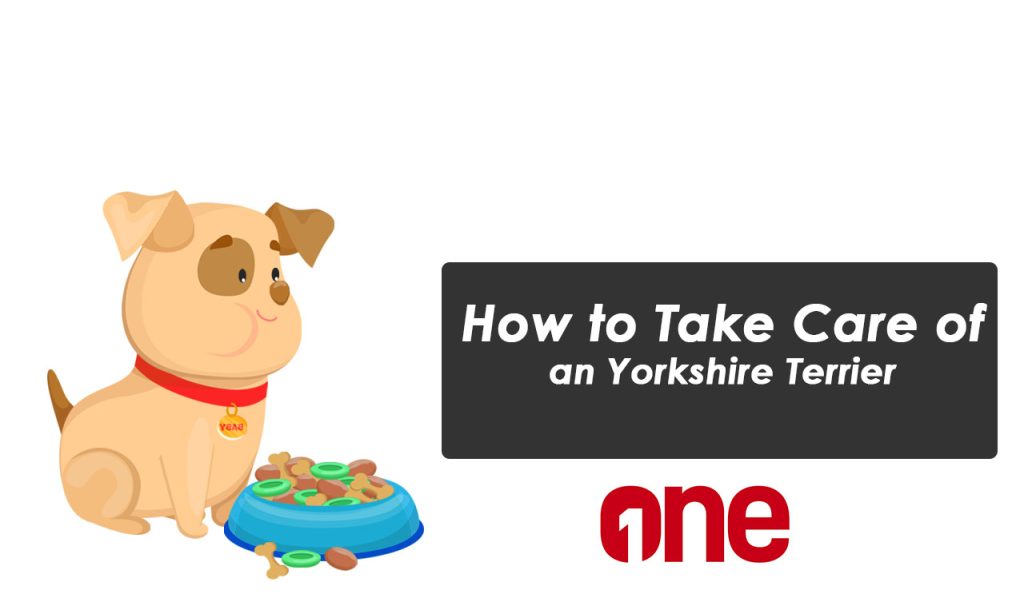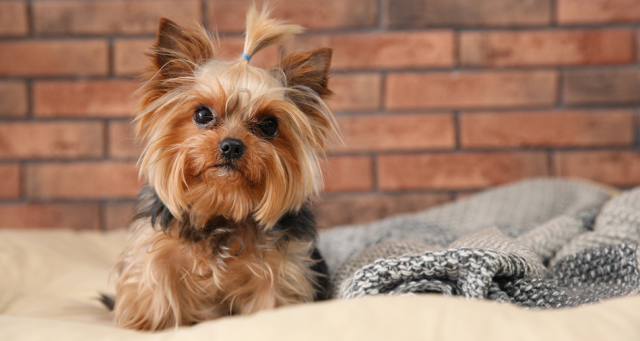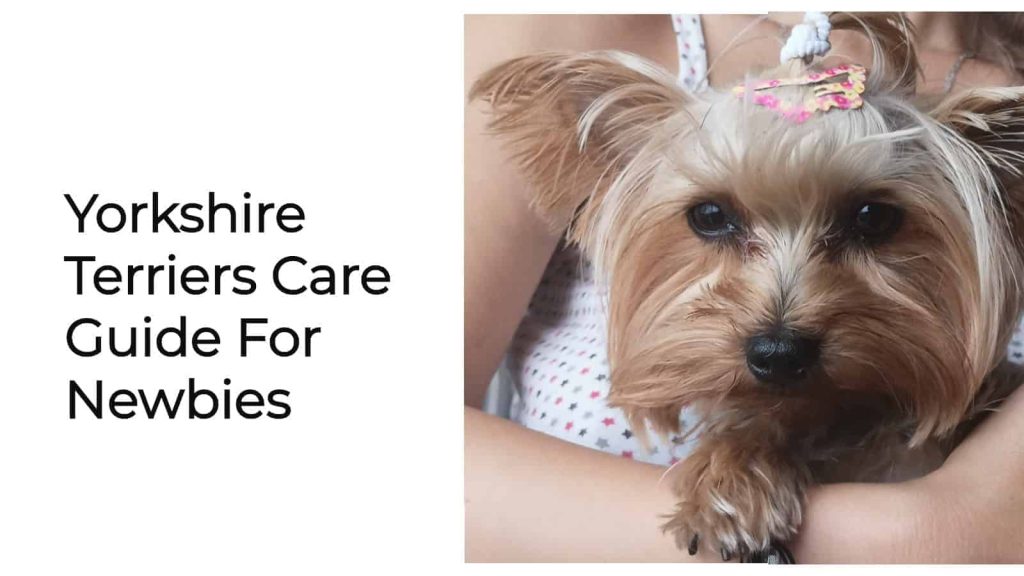
Ahoy, fellow pet enthusiasts! Brace yourselves for a whirlwind adventure as we delve into the world of the mighty Yorkshire Terrier. These pint-sized pups pack a punch of personality that’s sure to keep you on your toes (and occasionally hiding behind the couch). But fear not, for I, your trusty pet caretaker extraordinaire, am here to guide you through the highs, lows, and potty-training woes of owning one of these feisty furballs.

The Yorkshire Terrier: A Breed Like No Other
First things first, let’s address the elephant in the room – or should I say, the tiny terrier in the room. Yorkshire Terriers may be small in stature, but their big personalities more than make up for it. These little dynamos were originally bred to hunt rats in Yorkshire mills, and they’ve retained that fearless, feisty spirit to this day.
Grooming: A Labor of Love (and Patience)
One of the most iconic features of the Yorkshire Terrier is their luscious, silky coat. But with great hair comes great responsibility, my friends. Maintaining that gorgeous mane requires regular brushing, bathing, and trips to the groomer (preferably one with nerves of steel).
Brace yourselves for the dreaded “Yorkie Gremlin” phase, where your once-angelic pup transforms into a matted, tangled mess during their coat changes. It’s a rite of passage that will test even the most dedicated pet parent’s patience (and may result in a few therapeutic glasses of wine).
Exercise and Mental Stimulation: Keeping the Tiny Terror Tamed
Despite their compact size, Yorkshire Terriers have boundless energy and a mischievous streak a mile wide. Regular exercise and mental stimulation are crucial to prevent your furry friend from turning your home into their personal demolition zone.
Short walks, playtime in a secure yard, and interactive toys like puzzle feeders can help channel their energy in a positive direction (and save your favorite pair of slippers from an untimely demise).
Training: Outsmarting the Smarty-Pants
Yorkies are intelligent little buggers, which means they’re quick learners – but they’re also stubborn as mules. Consistency and positive reinforcement are key when training these spirited pups.
Remember, patience is a virtue when dealing with a Yorkie. They may be small, but their sass levels are off the charts. Brace yourself for epic battles of will, where you’ll question who’s really in charge (spoiler alert: it’s probably the dog).
Socialization: Conquering the Napoleon Complex
Despite their diminutive size, Yorkshire Terriers often suffer from a severe case of “small dog syndrome,” where they believe they’re the toughest pup on the block. Early socialization is crucial to prevent your Yorkie from developing an aggressive Napoleon complex.
Introduce them to a variety of people, sights, sounds, and (most importantly) other dogs from an early age. This will teach them that the world doesn’t revolve around their tiny selves (even if they firmly believe otherwise).
Health Considerations: Keeping the Tiny Terror Ticking
Like many small breeds, Yorkshire Terriers can be prone to certain health issues, such as dental problems, luxating patellas (dislocated kneecaps), and hypoglycemia (low blood sugar). Regular vet check-ups, a balanced diet, and careful monitoring are essential to keep your furry friend in tip-top shape.
And let’s not forget about those pesky tear stains. If your Yorkie’s face resembles a raccoon after a night of binge-drinking, don’t panic – it’s just a harmless (but slightly unsightly) byproduct of their gorgeous peepers.

Conclusion
Owning a Yorkshire Terrier is a rollercoaster ride of joy, frustration, and more than a few “why did I sign up for this?” moments. But at the end of the day, these tiny terrors will steal your heart with their boundless energy, unwavering loyalty, and hilariously big personalities.
So, buckle up, stock up on lint rollers, and prepare to have your life turned upside down in the most delightful way possible. Because once you’ve been owned by a Yorkshire Terrier, there’s no going back.
FAQs
- Can Yorkshire Terriers be left alone for long periods? While Yorkies are relatively low-maintenance in terms of exercise, they thrive on human companionship and can develop separation anxiety if left alone for extended periods. It’s best to have someone check in on them regularly or consider doggy daycare if you’ll be away for long stretches.
- Are Yorkshire Terriers good with children? With proper socialization and training, Yorkshire Terriers can make excellent companions for children. However, their small size and tendency for defensive behavior make it crucial to supervise interactions and teach children how to handle them gently.
- Do Yorkshire Terriers bark a lot? Unfortunately, yes. Yorkies are notorious for their propensity to bark, often at the slightest provocation (or just for the heck of it). Consistent training and addressing any underlying causes (like separation anxiety or boredom) can help curb excessive barking.
- Are Yorkshire Terriers hypoallergenic? While no dog breed is truly hypoallergenic, Yorkshire Terriers are considered a relatively low-shedding breed, making them a potential option for those with mild pet allergies. However, individual reactions can vary, and allergy testing is recommended before bringing a Yorkie into your home.
- Can Yorkshire Terriers live in apartments? With proper exercise and training, Yorkshire Terriers can adapt well to apartment living. Their small size and relatively low exercise needs make them a good choice for city dwellers, as long as their activity requirements are met through walks, playtime, and mental stimulation.






